Anthony Albanese likened to Mark Latham amid split with US on Israel
John Howard has drawn parallels between Anthony Albanese and Mark Latham over Labor’s handling of national security, warning that the government ‘doesn’t really have a grasp on the nuances of foreign policy’.
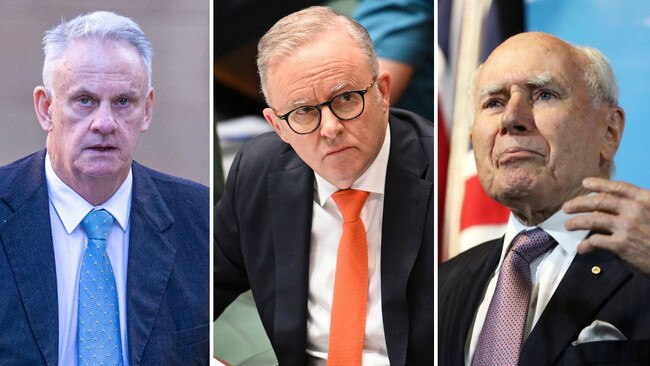
John Howard has drawn parallels between Anthony Albanese and Mark Latham over Labor’s handling of national security, warning that the government “doesn’t really have a grasp on the nuances of foreign policy in the Middle East”.
As the Prime Minister’s ceasefire calls were undermined by US officials hardening support for Israeli military operations against Hezbollah, Mr Howard said the Albanese government “can’t even make its mind up” over Gaza and Lebanon.
On the 20th anniversary of the Coalition’s 2004 election win – claimed under the backdrop of the Iraq War and clashes over interest rates – the former prime minister said Mr Latham’s stumbles over foreign policy helped deliver him a fourth term victory.
Mr Howard said Mr Latham, who had started strongly and was expected to come close to defeating the Coalition, had failed to grasp the nuances of national security and foreign policy.
“At one stage he declared that he would ‘bring the troops home by Christmas’ which was seen as an unrealistic claim,” Mr Howard said.
“It is the same at the moment because the government doesn’t really have a significant grasp on the nuances of foreign policy in the Middle East. In recent times the government can’t even make its mind up about what to do over Gaza and Lebanon.”
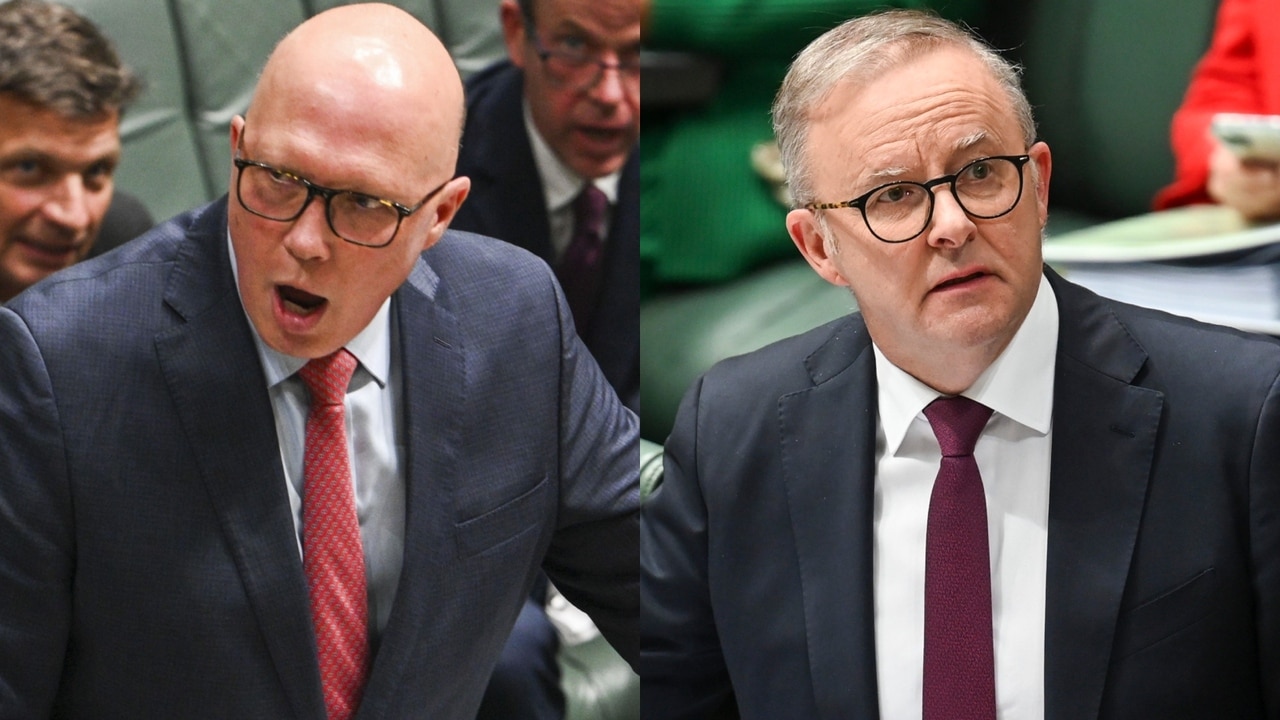
The intervention by Australia’s second longest serving prime minister came as Mr Albanese on Wednesday flew to Laos for the ASEAN summit amid an ugly clash with Peter Dutton over Labor’s October 7 condolence motion calling for a “ceasefire in Gaza and Lebanon”.
Before flying-out of the country, Mr Albanese refused to join the US in backing strikes against Hezbollah targets in Lebanon despite insisting he is in lock-step with US President Joe Biden on Israel.
As Iran’s terrorist proxy backed Lebanese government calls for a ceasefire with Israel, the US State Department said the Biden administration supported Israeli “incursions to degrade Hezbollah’s infrastructure”.
But Mr Albanese sidestepped questions on the US position, referring back to past statements by the US and key partners – including one nearly a fortnight ago – calling for a ceasefire across the Israeli-Lebanese border.
“We have always supported the same position as the United States have put,” Mr Albanese told Sky News.
“The United States have consistently said that there needs to be an agreement and there were negotiations with Israel and Hezbollah prior to the current escalation. And you need a de-escalation in order to have a diplomatic solution.”
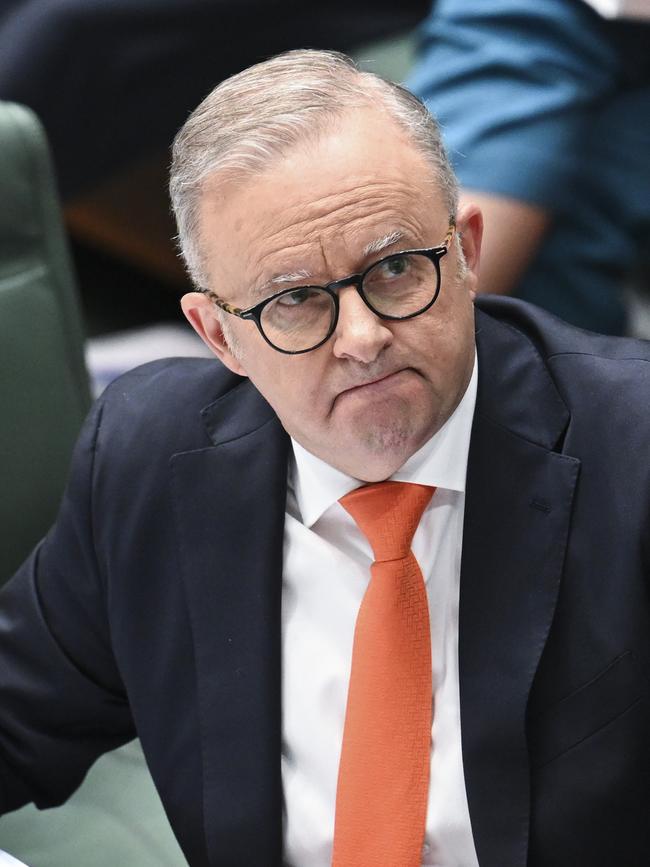
Mr Dutton told The Australian that Mr Albanese “either wasn’t briefed on this important matter, or he just wasn’t on top of the detail”.
“The difference between the position adopted by the Biden administration and the Albanese government is that President Biden isn’t selling his country’s interests out to win votes domestically,” the Opposition Leader said.
“The Biden administration has taken a principled decision to support a trusted ally, whereas Mr Albanese has sold out a trusted ally because he thinks it will win him votes at the next election.”
Executive Council of Australian Jewry co-chief executive Peter Wertheim urged a rethink by the government. “It needs to clarify whether it will support Israel in doing what needs to be done to Hezbollah in order to make a lasting de-escalation possible, and ultimately real peace,” Mr Wertheim said.
The latest political clash over the conflict came a day after the parliament failed to reach bipartisan agreement on a condolence motion for victims of the October 7 massacre, as Labor used the tribute to decry the conflict’s broader toll in Gaza and Lebanon. Negotiations on a revised motion in the Senate broke down on Wednesday, amid Coalition demands for any ceasefire or de-escalation to be negotiated rather than imposed on Israel.
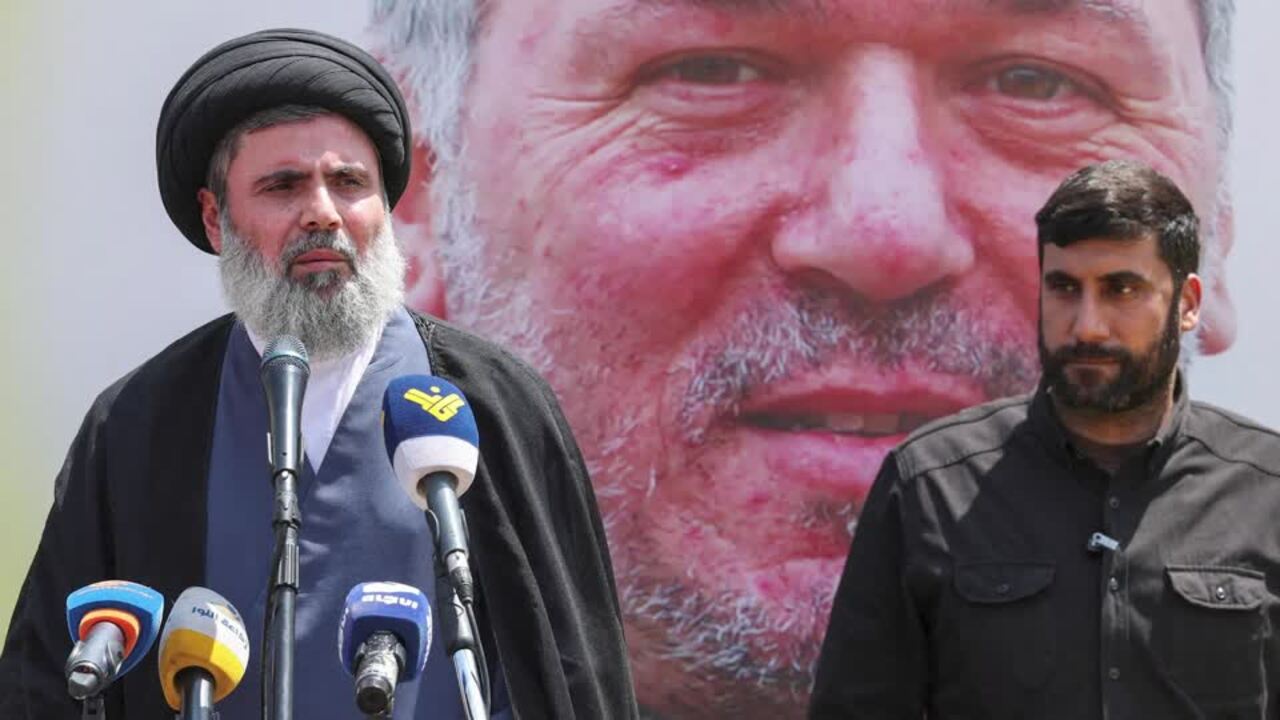
Finance Minister Katy Gallagher said the Coalition wanted “to see the conflict continue”, while Foreign Minister Penny Wong accused it of breaking with Australia’s international partners on the need for ceasefires.
“It’s a shame the Liberals and the Nationals once again choose domestic politics over principles,” Senator Wong said.
Opposition foreign affairs spokesman Simon Birmingham hit back, declaring “Labor seems incapable of accepting the difficult realities of what’s necessary to remove the terrorist threats”.
“Once again the Albanese government’s naive approach to ceasefires is at odds with and in stark contrast to the position of the United States,” Senator Birmingham said.
The US joined a G7 statement last week urging a de-escalation of tensions between Israel and Hezbollah, and an earlier September 27 statement backed by Australia calling for an “immediate 21 day ceasefire” across the Israeli-Lebanese border.
But the US has set aside its ceasefire calls on the conflict in Lebanon, backing Israeli strikes to drive Hezbollah away from the countries’ border, as stipulated by a 2006 UN Security Council resolution.
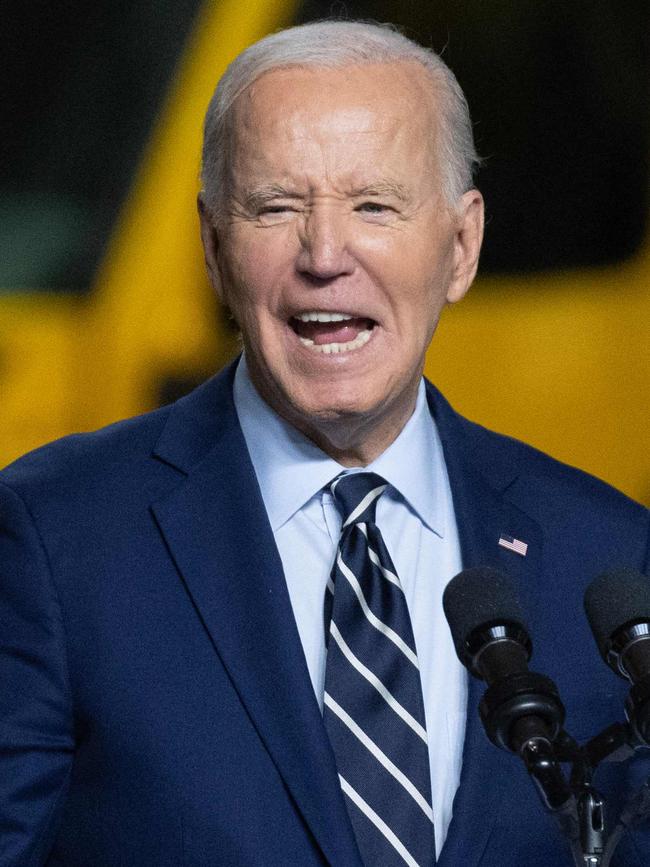
US State Department spokesman Matthew Millar on Wednesday (AEDT) said the US continued to advocate a diplomatic solution but wanted to see UN Security Council Resolution 1701 “fully implemented”.
The resolution, which was backed at the time by Hezbollah, barred the terrorist group’s presence south of Lebanon’s Litani River, which flows about 29km from the Israeli border.
“We do support the limited ground incursions that (the IDF) are undertaking. Hezbollah has not yet been removed from its positions all the way across the border. Hezbollah is still in a position in southern Lebanon to launch attacks against Israel,” Mr Miller said
“What’s happening right now is Israel is degrading, significantly degrading in some ways, Hezbollah’s military capabilities. And I think the fact that they came out and called for a ceasefire … shows that Hezbollah knows it’s on the back foot, knows its capabilities are being degraded.”
Mr Howard, who previously said Mr Albanese carried blame for rising levels of anti-Semitism due to a failure in denouncing in unequivocal terms the horror of Hamas’ October 7 attacks, said: “Of course, everyone wants a two-state solution with Palestine and Israel but you can’t get one unless all Arab countries agree”.
The former Liberal leader said he had met with then PLO leader Yasser Arafat and former Israeli prime minister Ehud Barak to support a two-state solution but the Palestinians couldn’t agree because of extremist opposition.
“The big question was not whether Israel, the US or the Zionists would agree to a two-state solution and the acceptance of a state of Israel, it was whether the extreme Arab groups would do so,” he said.
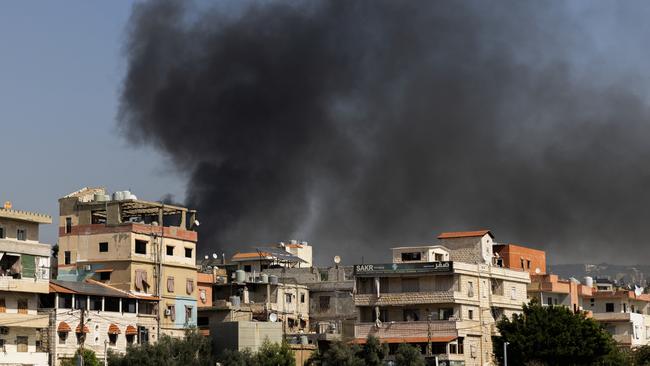
The US endorsement of Israel’s northern offensive came as Benjamin Netanyahu warned the Lebanese people to take action against Hezbollah or risk the country falling “into the abyss of a long war that will bring destruction and suffering similar to what we see in Gaza”.
The Israeli Prime Minister was due to speak to Mr Biden about retaliatory strikes against Iran for its missile attack last week, as the Wall Street Journal revealed US frustrations that Israel had so far refused to share details of its plans.
Senator Wong told the UN Security Council late last month that Hezbollah had not complied with Resolution 1701, “but Lebanese civilians should not pay the price”.
“De-escalation is urgent, dialogue is needed, and parties must implement this resolution in full,” she said.

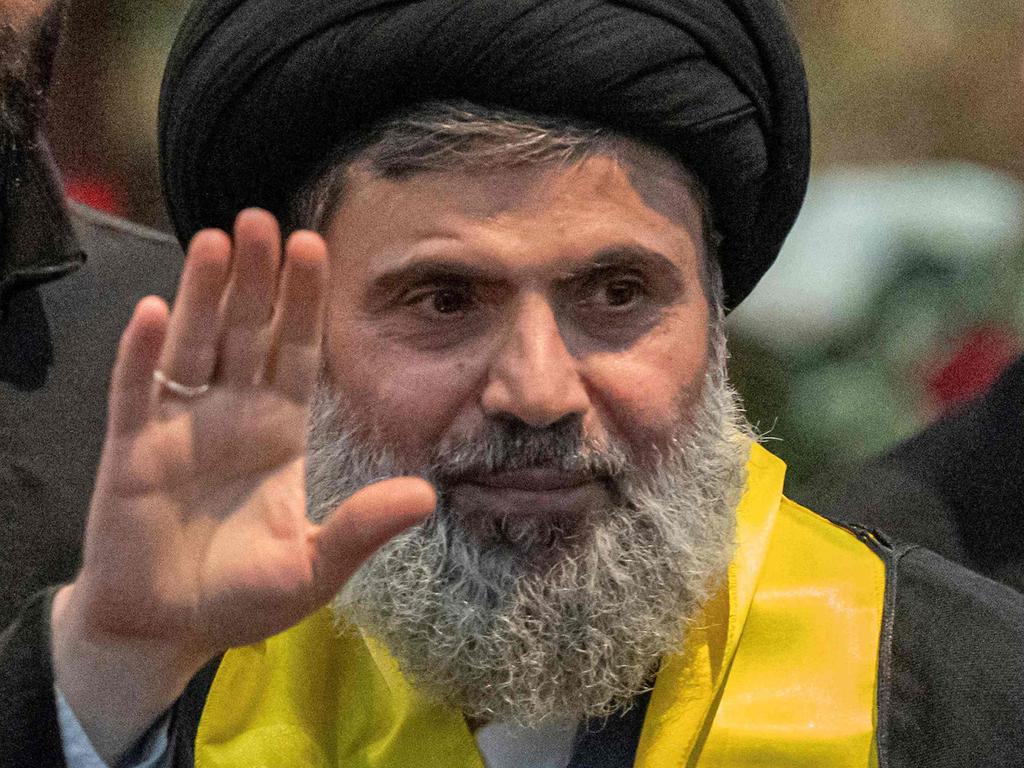



To join the conversation, please log in. Don't have an account? Register
Join the conversation, you are commenting as Logout